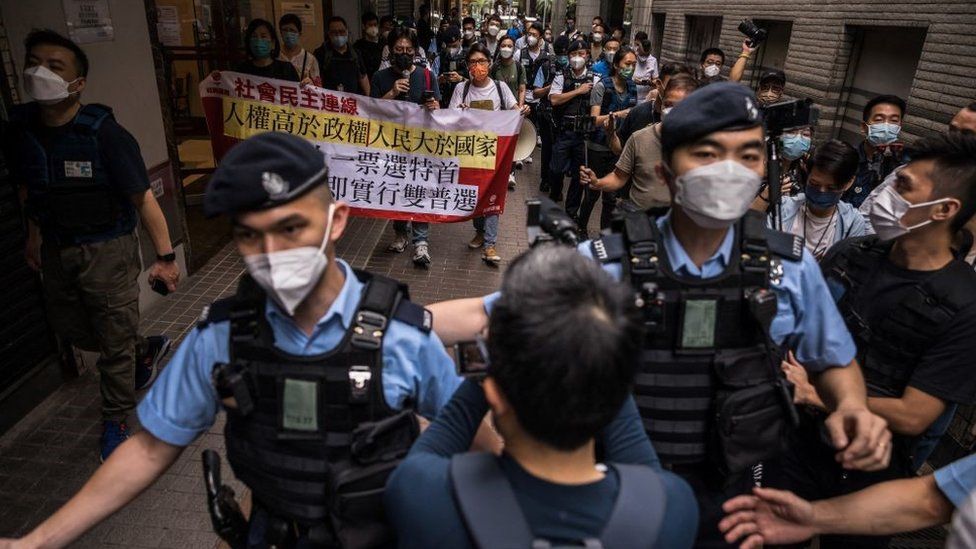BBC News 8 May 2022
John Lee has been named Hong Kong's new leader, after a closed voting process in which he was the sole candidate.
His appointment is being widely seen as a move by the Chinese government to tighten its grip on the city.
Mr Lee replaces outgoing chief executive Carrie Lam, who had served since 2017.
Hong Kong's leaders are selected by a closed-circle committee of around 1,500 members, who are nearly all pro-Beijing loyalists - although this time there was only one contender for them to elect.
Mr Lee, who was the former Chief Secretary and the city's second-highest ranking official, was always tipped to be the favoured replacement for Ms Lam who earlier announced that she would not seek a second term in office.
But although Mr Lee has Beijing's backing, he is deeply unpopular for his role in overseeing the crackdown on protestors during demonstrations over a controversial extradition bill in 2019.
Mr Lee continued to back the bill despite the unrest, and came under intense criticism for sanctioning the police's use of water cannons, rubber bullets, tear gas and occasionally live ammunition to disperse protestors.
In 2020, he also backed the imposition of a controversial national security law which criminalised most forms of political protest and dissent, and reduced the city's autonomy.
Mr Lee maintained that the law would help restore "stability from chaos".
He was elevated to the leadership ranks last year, in a sign, analysts said, of Beijing's intention to focus on security in Hong Kong.
His role in the implementation of the law led to US sanctions against him and a dozen other officials, and a YouTube block on his 2022 election campaign.
The League of Social Democrats - one of the only remaining pro-democracy groups - held a three-person protest before polls opened, chanting "power to the people, universal suffrage now".
"This is what John Lee's new chapter looks like, a shrinking of our civil liberties," said protester Vanessa Chan as police officers looked on.
"We know this action will have no effect, but we don't want Hong Kong to be completely silent," she added.
Hong Kong was handed back to China from Britain in 1997 under the agreement that rights such as freedom of assembly and freedom of speech would be guaranteed in the territory.
However, critics say those rights have been increasingly eroded as Hong Kong authorities crack down on dissent in the city. Mr Lee's staunch support of Beijing's policies has stoked fears that his leadership will usher in an era of tighter Chinese oversight of the semi-autonomous region.

